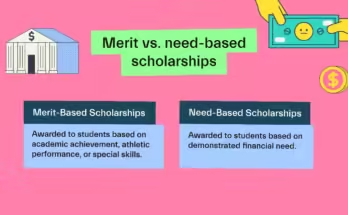What is XNXP Personality?
The XNXP personality type is a flexible designation used to describe individuals who combine the traits of Intuition (N), Thinking (T), and Perceiving (P) while leaving the energy orientation—Extroversion (E) or Introversion (I)—unspecified. This allows for exploration of shared characteristics between ENTPs and INTPs without rigidly categorizing individuals into one or the other.
Overview of the MBTI Model and Its Dimensions:
The Myers-Briggs Type Indicator (MBTI) categorizes personality types based on four dichotomies:
- Extroversion (E) vs. Introversion (I): How individuals gain energy—either through social interactions (E) or solitude and reflection (I).
- Intuition (N) vs. Sensing (S): The focus of attention—abstract concepts and future possibilities (N) or concrete details and the present moment (S).
- Thinking (T) vs. Feeling (F): Decision-making preference—logical and objective analysis (T) or empathetic and value-driven judgment (F).
- Perceiving (P) vs. Judging (J): Lifestyle orientation—adaptability and spontaneity (P) or structure and planning (J).
Explanation of XNXP:
The term “XNXP” represents a shorthand for personality types with unspecified energy orientation (Extroversion or Introversion), combined with Intuition, Thinking, and Perceiving. This label highlights a flexible grouping that includes both ENTP and INTP types, focusing on shared characteristics rather than fixed labels.
Importance of Flexible Personality Groupings:
Examining broad categories like XNXP allows us to explore commonalities and nuances, offering a richer understanding of how individuals think, adapt, and interact with the world.
2. Characteristics of XNXP Personality Types
- Extroversion (X):
XNXP personalities exhibit both extroverted and introverted tendencies, adapting their social engagement based on the context. - Intuition (N):
A focus on abstract thinking, creativity, and exploring future possibilities defines their worldview. - Thinking (T):
They rely on logic and objectivity to evaluate situations and make decisions. - Perceiving (P):
These individuals are spontaneous, open-minded, and thrive in environments that encourage flexibility.
3. Variability and Commonalities in XNXP Types
- Commonalities Between ENTP and INTP Types:
Both are curious, adaptable, and innovative thinkers who excel in problem-solving. - Differences Influenced by Energy Orientation:
- ENTP: Outgoing, energized by social interaction, and skilled at inspiring others.
- INTP: Reflective, energized by introspection, and adept at deep analysis.
4. Strengths of XNXP Personality Types
- Exceptional adaptability and ability to navigate changing environments.
- Strong pattern recognition and abstract thinking skills.
- A natural curiosity and passion for knowledge.
- Clarity in communicating complex ideas.
5. Challenges Faced by XNXP Individuals
- Difficulty maintaining focus on long-term goals.
- Balancing spontaneity with structure can be a struggle.
- A tendency to overanalyze, leading to indecision.
- Challenges in expressing emotional understanding in interpersonal relationships.
6. Relationship Dynamics
- Approach to Connections:
They value intellectual stimulation and mutual respect in friendships and romantic relationships. - Communication Style:
While logical and clear, their focus on analysis may sometimes overshadow emotional cues. - Keys to Success:
Building trust through balanced communication and fostering shared interests.
7. Career Preferences and Work Style
- Ideal Professions:
Innovators, entrepreneurs, researchers, strategists, and roles that reward creative thinking. - Preferred Work Environments:
Flexible, autonomy-driven workplaces that encourage exploration and adaptability.
8. Comparison to Other MBTI Types
- XNXP vs. XNXJ: XNXPs are more spontaneous and less structured, while XNXJs prefer organization.
- XNXP vs. XSXP: XNXPs lean toward abstract ideas, whereas XSXPs focus on practical and tangible solutions.
9. Tips for Growth and Development
- Practice strategies for improved focus and task completion.
- Balance logic with emotional sensitivity for better interpersonal connections.
- Address practical challenges while leveraging intuitive strengths.
- Foster habits that support long-term goal achievement.
10. Conclusion
XNXP personalities are dynamic, adaptable, and intellectually curious, making them unique contributors to any environment. Embracing their strengths while addressing areas for growth can lead to greater self-awareness, personal development, and meaningful relationships.




I always used to read paragraph in news papers but now as
I am a user of web thus from now I am using net
for articles, thanks to web.
I’m really impressed with your writing skills and also with the layout on your weblog.
Is this a paid theme or did you customize it yourself? Anyway
keep up the nice quality writing, it is rare to see a great blog like this one these days.
Hi to all, the contents present at this site are truly awesome for people
experience, well, keep up the good work fellows.